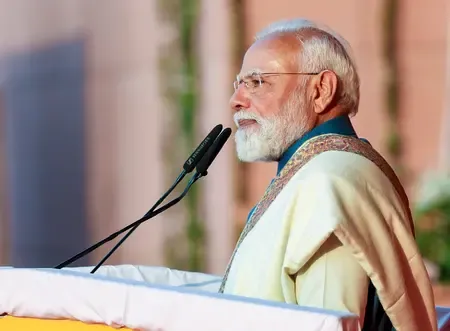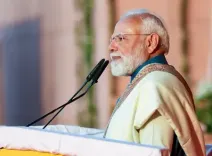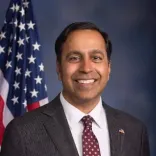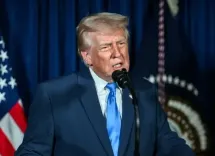Will the India-UK FTA Revolutionize Services Exports?

Synopsis
Key Takeaways
- CETA enhances services exports from India to the UK.
- Streamlined entry for professionals in various sectors.
- Exemptions from social security contributions for Indian workers.
- Unprecedented duty-free access to 99% of India's exports.
- Support for small businesses and e-commerce.
New Delhi, July 27 (NationPress) The India-UK Comprehensive Economic and Trade Agreement (CETA) offers a promising expansion beyond traditional goods, focusing significantly on services exports, a critical component of India’s economic landscape. Presently, India's services exports to the UK stand at an impressive $19.8 billion, and CETA is expected to enhance this further by facilitating greater mobility for professionals in sectors such as IT, healthcare, finance, and education.
The agreement introduces provisions for easier entry of contractual service suppliers, business visitors, intra-corporate transferees, and independent professionals like yoga instructors, chefs, and musicians.
A significant advancement is the Double Contribution Convention, which allows Indian workers and their employers to be exempt from UK social security contributions for up to three years during temporary assignments. This is anticipated to benefit around 75,000 workers and over 900 companies, leading to savings exceeding Rs 4,000 crore.
The free trade agreement encompasses a broad spectrum, including Information Technology, IT-enabled services, financial and professional services, business consulting, education, telecom, architecture, and engineering, promising to unlock high-value opportunities and foster job creation.
As services remain a cornerstone of India’s economy, this agreement provides enhanced market access across IT, financial services, education, and healthcare, establishing a structured framework for the temporary movement of professionals. Under these new rules, up to 1,800 Indian chefs, yoga instructors, and classical musicians can now work in the UK yearly.
The agreement also simplifies compliance for exporters by allowing self-certification of product origin, thereby minimizing time and paperwork. UK importers can leverage their knowledge for certification, facilitating smoother trade. For small consignments below 1,000 pounds, origin documentation is not required, supporting e-commerce and small businesses. The Product Specific Rules of Origin (PSRs) are designed to align with India's existing supply chains in key sectors such as textiles, machinery, pharmaceuticals, and processed food.
With bilateral trade between India and the UK already at $56 billion, this free trade agreement aims to double that figure by 2030.
Commerce and Industry Minister Piyush Goyal stated: "The India–UK Comprehensive Economic and Trade Agreement (CETA) is crafted to unveil new avenues for trade and investment while safeguarding India’s vital economic interests. It encompasses tariff reductions, streamlined trade rules, strong provisions for services, and measures to facilitate professional mobility."
This FTA is poised to act as a catalyst for inclusive growth, benefiting farmers, artisans, workers, MSMEs, startups, and innovators while protecting India’s core interests and propelling our trajectory towards becoming a global economic powerhouse, he added.
CETA grants unprecedented duty-free access to 99 percent of India’s exports to the UK, encompassing nearly 100 percent of the trade value. This includes labor-intensive sectors such as textiles, leather, marine products, gems and jewellery, and toys, alongside high-growth sectors like engineering goods, chemicals, and auto components. This is expected to fuel large-scale employment generation and empower artisans, women-led enterprises, and MSMEs.
India has opened 89.5 percent of its tariff lines, which covers 91 percent of the UK’s exports, while protecting sensitive sectors and strategically important products where domestic capacity is under development. The removal of duties will make various imported goods more affordable for consumers, providing greater variety and quality at competitive prices.










